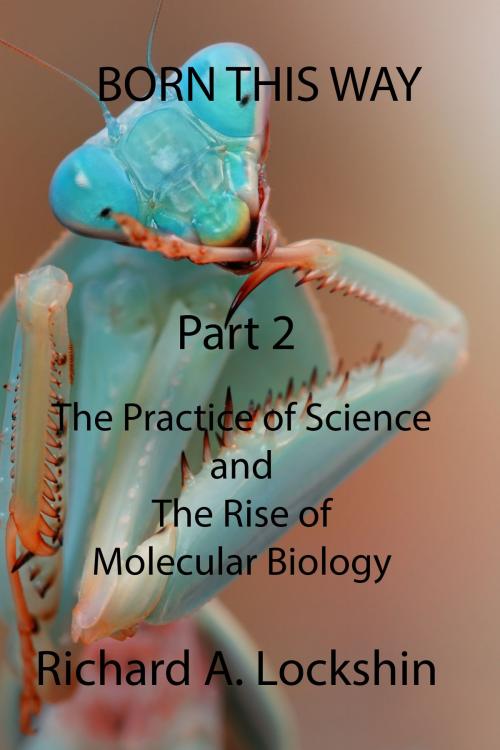Born This Way: Becoming, Being, and Understanding Scientists. Part 2: The Practice of Science and the Rise of Molecular Biology
Nonfiction, Science & Nature, Science, Other Sciences, Molecular Biology, Biological Sciences, Biology| Author: | Richard Lockshin | ISBN: | 9780989467421 |
| Publisher: | Richard Lockshin | Publication: | January 23, 2014 |
| Imprint: | Smashwords Edition | Language: | English |
| Author: | Richard Lockshin |
| ISBN: | 9780989467421 |
| Publisher: | Richard Lockshin |
| Publication: | January 23, 2014 |
| Imprint: | Smashwords Edition |
| Language: | English |
A senior and well-published scientist describes, through anecdotes, parables, and stories how scientists conceive, ask, and answer questions, and how what they do develops from the culture of their time. The first part describes the origins of modern biological science. including why the story of evolution arose in the 19th C, and not before or after. Part 2 describes the rules for experimental science, what constitutes a good versus a poor experiment, how hypotheses, such as the hypothesis or the origin of AIDS, are tested and evaluated. The author goes on to describe the origins of molecular biology and the "cool tricks" that created a billionfold greater ability to analyze living things, leading to the miraculous capabilities that we have today. Finally, he reflects on the interaction of scientists and the lay public in deciding how the world of the future will look. Overall, he argues that science is the pursuit of standard logic, accessible to everyone.Scientists should take care to explain themselves in terms that will be understood by non-scientists, but science is central to modern life, and non-scientists need to understand how science is done, what the implications of modern science are, and what modern science does not and cannot do.
A senior and well-published scientist describes, through anecdotes, parables, and stories how scientists conceive, ask, and answer questions, and how what they do develops from the culture of their time. The first part describes the origins of modern biological science. including why the story of evolution arose in the 19th C, and not before or after. Part 2 describes the rules for experimental science, what constitutes a good versus a poor experiment, how hypotheses, such as the hypothesis or the origin of AIDS, are tested and evaluated. The author goes on to describe the origins of molecular biology and the "cool tricks" that created a billionfold greater ability to analyze living things, leading to the miraculous capabilities that we have today. Finally, he reflects on the interaction of scientists and the lay public in deciding how the world of the future will look. Overall, he argues that science is the pursuit of standard logic, accessible to everyone.Scientists should take care to explain themselves in terms that will be understood by non-scientists, but science is central to modern life, and non-scientists need to understand how science is done, what the implications of modern science are, and what modern science does not and cannot do.















